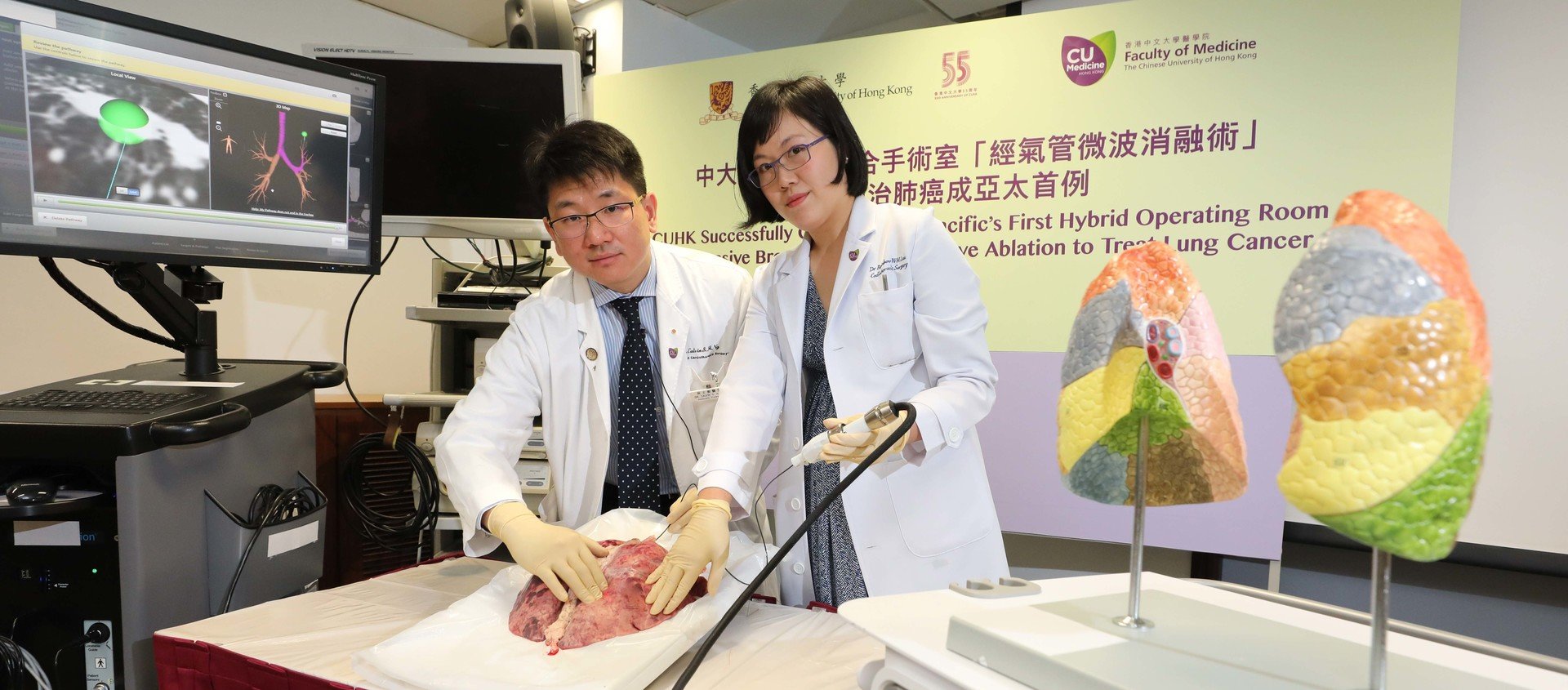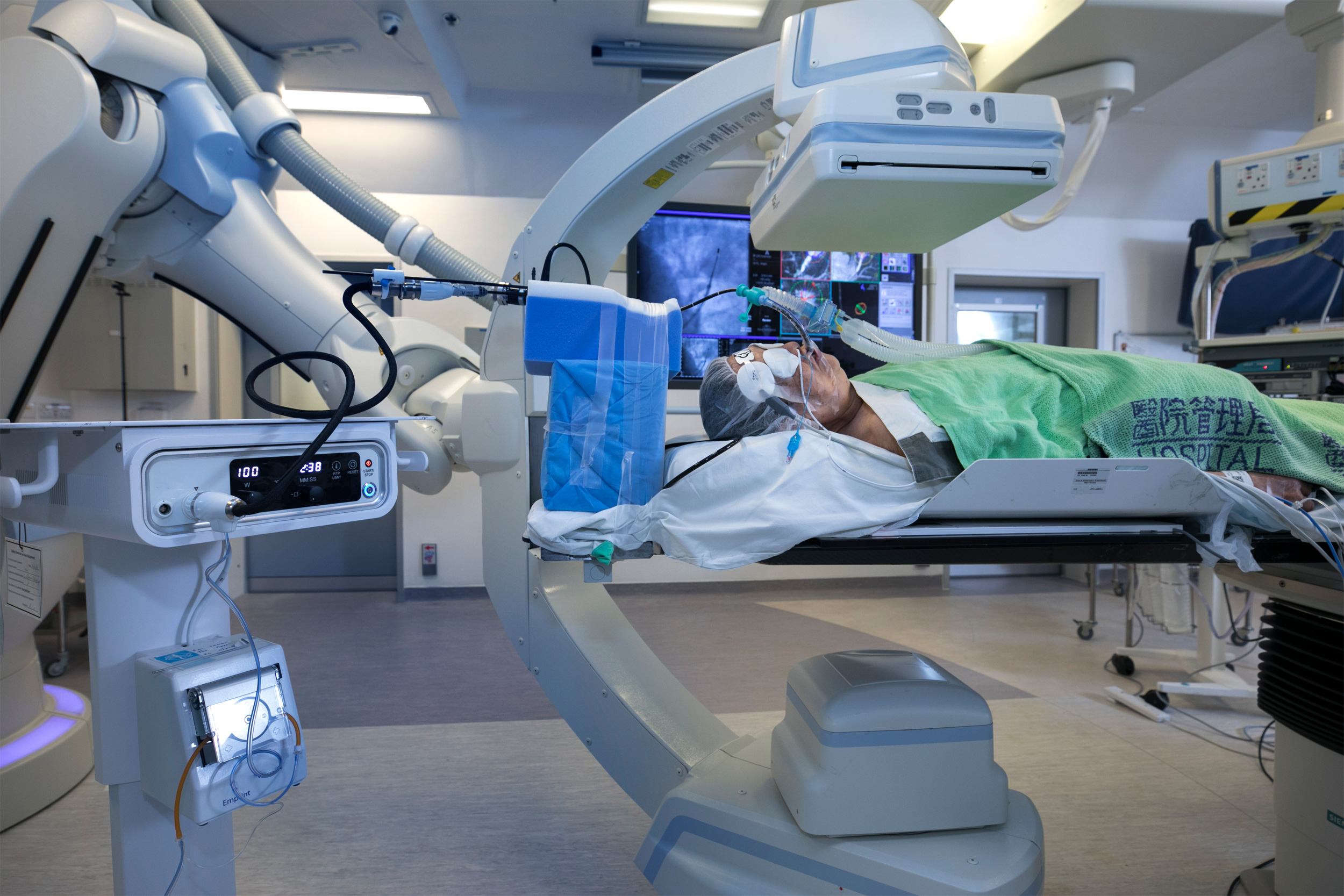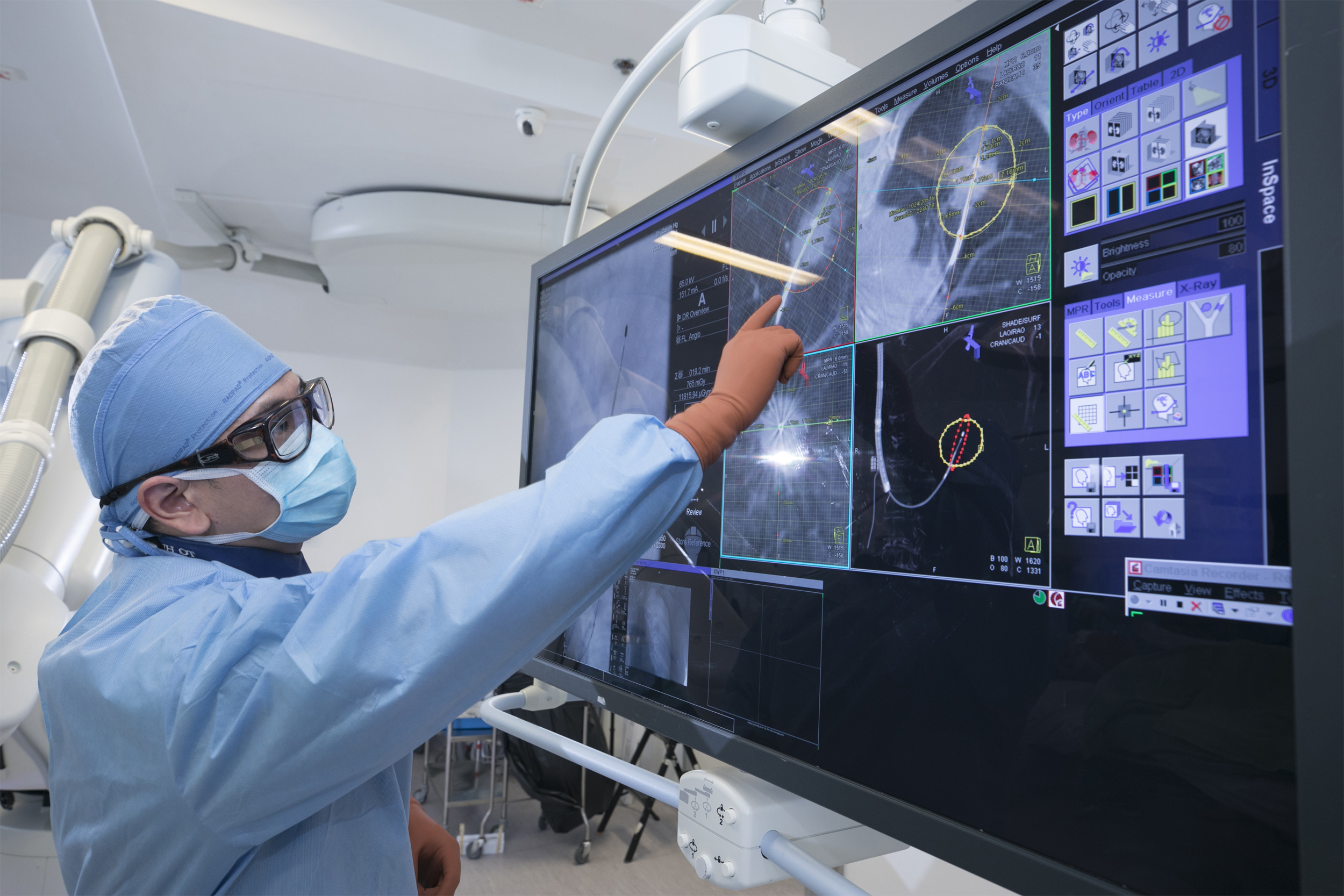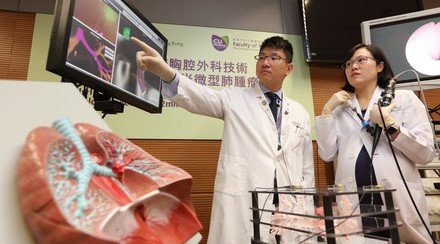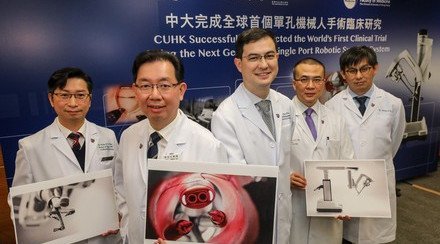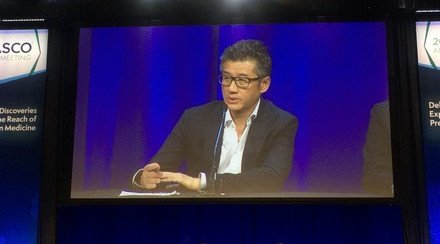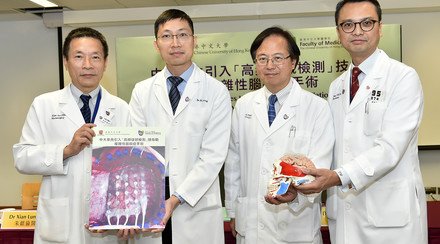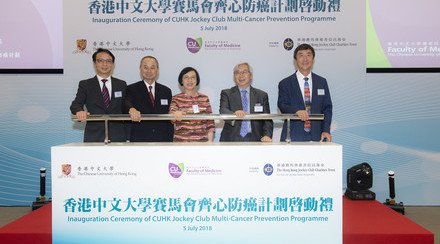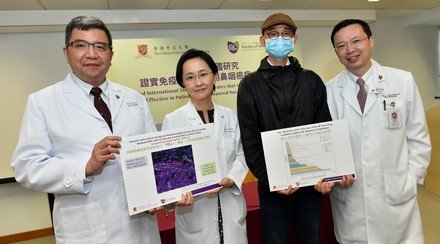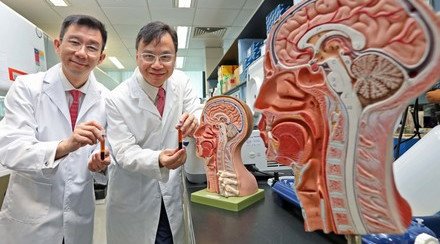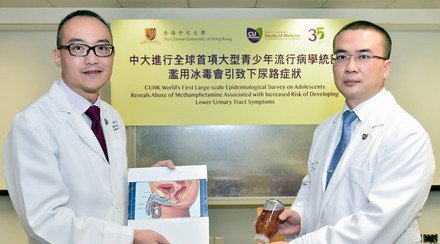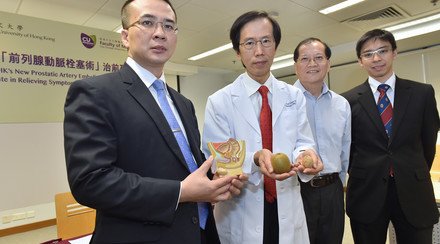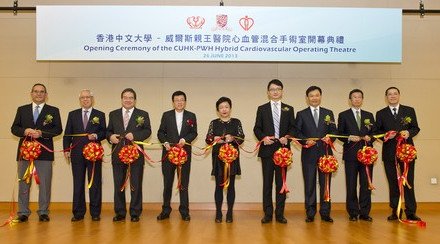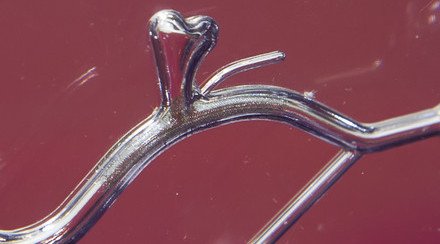CUHK Successfully Conducts Asia-Pacific’s First Hybrid Operating Room Non-invasive Bronchoscopic Microwave Ablation to Treat Lung Cancer
Thoracic surgical professors from the Faculty of Medicine of The Chinese University of Hong Kong (CUHK) successfully performed Asia-Pacific’s first non-invasive Bronchoscopic Microwave Ablation (BMA) in hybrid operating room for lung cancer treatment on 4th March 2019. The world renowned team in hybrid operating room thoracic procedures and electromagnetic navigation bronchoscopy has combined these technologies to allow high precision delivery of a BMA probe into the lung cancer, directly destroying the lesion. This novel approach to lung cancer treatment is totally scarless and has minimal morbidity compared with lung cancer surgery. As of now, the thoracic team has helped three patients with lung cancer by this technique. All were successful and discharged home one to two days after the procedure, without complications.
BMA – A new treatment option for lung cancer patients
Lung cancer remains one of the most common and deadliest cancers in Hong Kong. The best outcomes are achieved when patients are diagnosed and treated in the early stage. In the past, the standard of treatment was to conduct surgery for early stage lung cancers, and chemotherapy with or without radiotherapy for more advanced stage diseases. A new treatment option using BMA in select groups of lung cancer patients can avoid the trauma, pain, scars and complications associated with surgery.
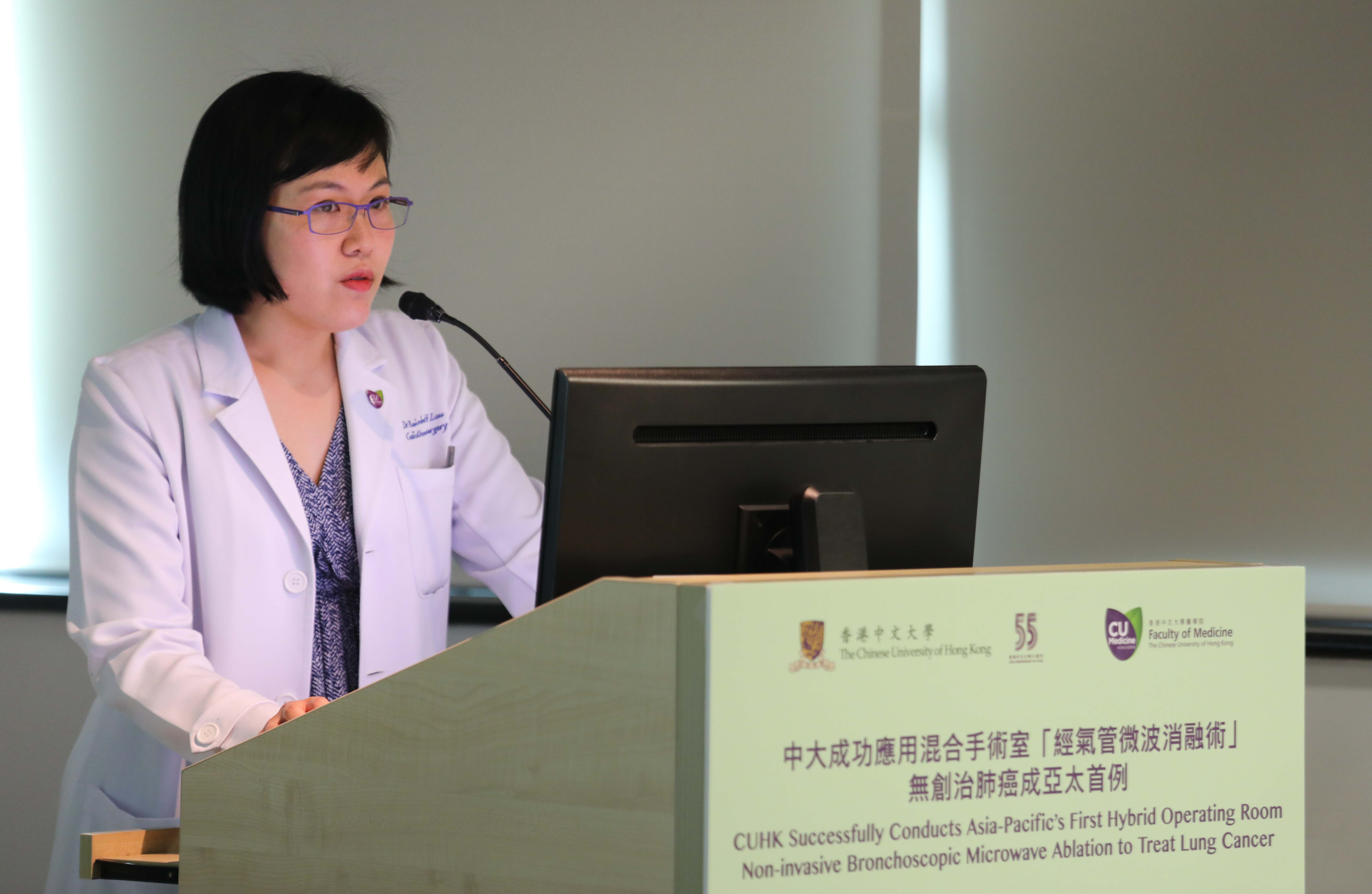
Dr. Rainbow LAU explains that microwave energy emitted from the catheter tip excites water molecules within the treatment zone of the lung tissue, raising the surrounding temperature to above 60°C and effectively destroying the cancer.

Dr. Calvin NG explains that the BMA approach can reduce blood loss (no blood loss in most cases), is painless in most patients, allows a shorter hospital stay, has minimal impact on lung function, and is totally non-invasive without incision. Furthermore, the procedure could have lower risk of complications.
Cancer cells are effectively destroyed by microwave energy emitted from the ablation catheter
Through the use of electromagnetic navigation bronchoscopy, surgeons can deploy the catheter tip for ablation into the lung cancer, and destroy the diseased tissue by the emitted microwave energy. Dr. Rainbow Wing Hung LAU, Clinical Assistant Professor (honorary), Division of Cardiothoracic Surgery, Department of Surgery, Faculty of Medicine, CUHK, explained, “Microwave energy emitted from the catheter tip excites water molecules within the treatment zone of the lung tissue, raising the surrounding temperature to above 60°C. At above 60°C, all living cells, including cancer cells will die, effectively destroying the cancer.”
The whole procedure is performed under a light general anaesthesia in the hybrid operating room under the guidance of the real-time 360-degree cone-beam computed tomography scans to ensure proper placement of the microwave catheter, and the ablation is successful in destroying the cancer. The actual lung cancer ablation takes only 10 to 20 minutes to complete, and the BMA catheter is then removed. The patient is woken up and chest x-ray is done to ensure there are no complications before discharging the patient home.


